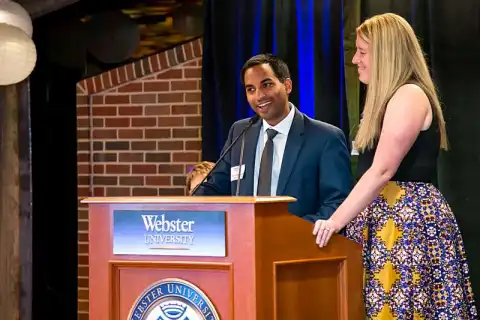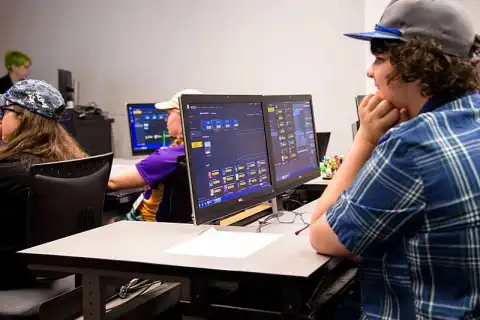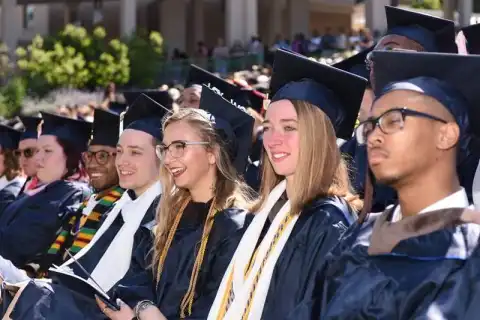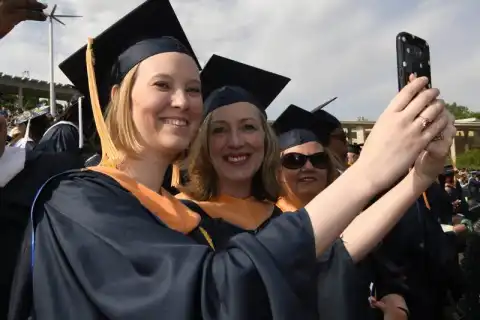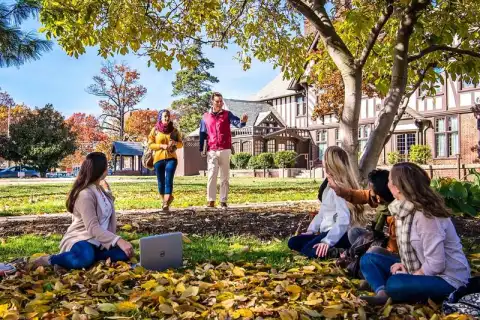Master of Science - Cybersecurity
- 2 years
- Duration
- Upon request
- Price
- Rolling admission
- Start
- Rolling admission
- Deadline
- Master
- Degree
- Mixed
- Format
- Multiple Locations / USA
- Location
- Webster University
- School
Program description
Students applying to cybersecurity programs should be well-rounded, with strong communication and quantitative abilities (high school algebra and trigonometry) and an understanding of computer systems and digital networks.
Earning a Master of Science (MS) in Cybersecurity is a great way to get the advanced training you need to manage and safeguard the world's most important computer networks, data centers, and communications infrastructures in the public or private sector.
Students will be prepared to apply what they have learned about cybersecurity to circumstances like information protection, terrorism, fraud, theft, intelligence/counterintelligence, digital forensics, preemptive and strategic force operations, and more.
Education is available in the USA, Singapore and Switzerland
Program structure
Main modules (24 credit hours)
- Introduction to Cybersecurity (3 hours)
- Cybersecurity Communications (3 hours)
- Cybersecurity Infrastructures (3 hours)
- Cybersecurity Intelligence/Counter Intelligence (3 hours)
- Cybersecurity Strategic Operations (3 hours)
- Encryption Methods and Techniques (3 hours)
- Social Engineering (3 hours)
- Practical Research in Cybersecurity (3 hours)
Elective Courses (12 hours)
Four elective courses (9 hours) chosen from the following:
- Cybersecurity Law and Policy (3 hours)
- Cybersecurity Threat Detection (3 hours)
- Cybersecurity Forensics (3 hours)
- Use and Protection of Space Assets (3 hours)
- Foundations of Software Development (3 hours)
- Cybersecurity in Cloud Computing (3 hours)
- Cybersecurity Risk Management Framework (3 hours)
- Advanced Topics in Cybersecurity (3 hours)
- Cybersecurity Internship (3 hours)
One additional elective course (3 hours):
- The student must select one additional elective from CSSS or other Webster elective credit courses that may be offered at the location where the student is completing their MS requirements.
All students in this curriculum must complete the Practical Research in Cybersecurity (3 hours) capstone course as a practical research paper or an individual or team project for a total of 3 credit hours and 36 contact hours.
Price
Requirements for applicants
- Applicants considered for admission to graduate studies at Webster University must hold an earned baccalaureate degree from an accredited educational institution recognized by Webster University, and meet all program admission standards. Applicants who have a completed baccalaureate degree from a U.S. accredited institution must satisfy program requirements or requisites, including a 2.5 (on a 4.0 scale) minimum cumulative Grade Point Average (GPA) at their baccalaureate degree granting institution for full admission. Students who completed their university education outside the U.S. must have earned an equivalent recognized baccalaureate degree as determined by Webster University. Students who have the necessary academic preparation for admission to accredited/recognized master's-level university programs in their native system of education, providing their academic preparation was at least three years in length, will be considered for admission using Webster University admission criteria. Consideration includes a minimum, cumulative GPA as calculated by Webster University.
- A curriculum vitae (résumé) that documents prior employment and experience or an essay on a topic of the student's choice, such as a special interest, significant experience or notable achievement. Minimum 300 word count in length.
English Proficiency for international student applicants:
Successfully meeting the requirements for one of the following tests within the last two years:
- TOEFL: jBT: 80
- TOEFL: pBT: 550
- IELTS: Academic: 6.0
- Duolingo: 110
- Pearson: 53
- Cambridge Academic English: 169
- Password: 6.0
- GTEC: 1201
- jTEP: 3.7
- SAT's English-based Reading and Writing Score: 450
- ACT composite score: 23
- Completion of at least one year academic of college-level coursework for undergraduate students at a regionally accredited U.S. institution of higher learning within the last three years. It must be academic coursework that is completed; ESL coursework does not qualify.
- Completion of at least one semester of graduate-level courses with grades of B or higher at a regionally accredited U.S. institution of higher learning within the last three years. Coursework must be academic; ESL coursework does not qualify.
- If a student has completed three or more years of study in an English-medium high school or university-level academic program in a country other than ones listed above, he/she may request a waiver.
- Successful completion of the ELS Language Center's English for Academic Purposes or ELS Language Center Level 112 (must have valid ELS 112 Certificate of Completion).
- Successful completion of the University of Central Florida's Center for Multilingual Multicultural Studies (CMMS) Intensive English Program (must have valid completion certificate).
About the university
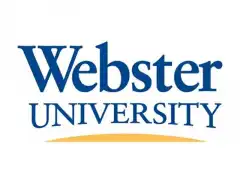
The extraordinary history of Webster University, which was founded in 1915 by the Loretto Sisters with the goal of making higher education more accessible to all, can be traced back to that same commitment to racial equality.
The growing interconnectedness of our world has prompted us to spend the last four decades creating a global network of engaged academics and alumni who work together to create meaningful connections in their local communities and beyond.
Our Core Values
- Students - keeping small classes, personal connections with professors and staff, and a focus on the needs of individual students is one way to ensure a truly global education for every student.
- Learning - for this purpose, we aim to develop educational programs that combine theory and practice; provide an international perspective; encourage creativity; and foster a lifelong desire to learn.
- Diversity and Inclusion - Instilling in students an appreciation for diversity and an understanding of their own and others' values by creating an environment that is accessible to individuals of diverse cultures, ages, and socioeconomic backgrounds.
- Global Citizenship - in order to educate and empower a wide range of people from all walks of life, as well as to protect the environment and strengthen the communities we serve.
Campuses and Locations
No matter where you live or work, our undergraduate and graduate programs are here to help you reach your professional and personal goals. We have campuses in USA, China, Greece, Austria, Switzerland and others.
